Perspectives in International Economic Law 1st ed. 2020 Edition John D. Haskell
Visit to download the full and correct content document: https://ebookmass.com/product/new-voices-and-new-perspectives-in-international-ec onomic-law-1st-ed-2020-edition-john-d-haskell/

More products digital (pdf, epub, mobi) instant download maybe you interests ...
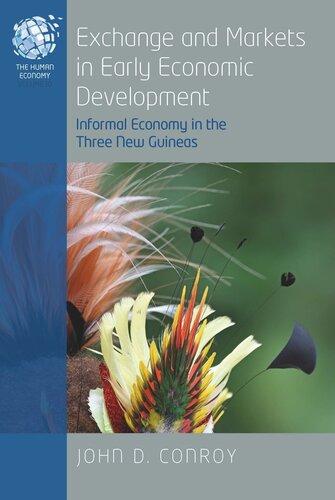
Exchange and Markets in Early Economic Development: Informal Economy in the Three New Guineas John D. Conroy
https://ebookmass.com/product/exchange-and-markets-in-earlyeconomic-development-informal-economy-in-the-three-new-guineasjohn-d-conroy/
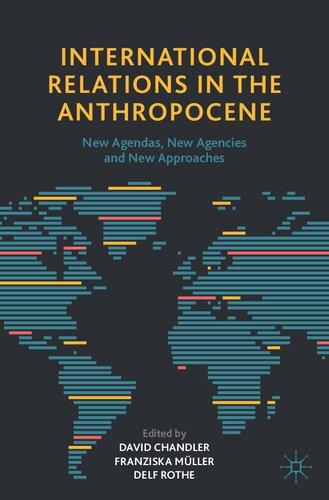
International Relations in the Anthropocene: New Agendas, New Agencies and New Approaches David Chandler
https://ebookmass.com/product/international-relations-in-theanthropocene-new-agendas-new-agencies-and-new-approaches-davidchandler/
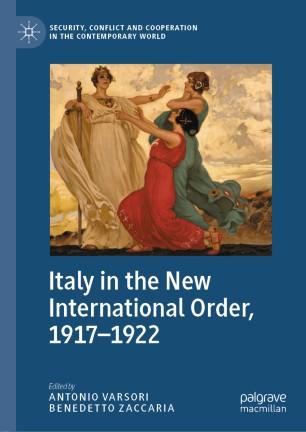
Italy in the New International Order, 1917–1922 1st ed. Edition Antonio Varsori
https://ebookmass.com/product/italy-in-the-new-internationalorder-1917-1922-1st-ed-edition-antonio-varsori/
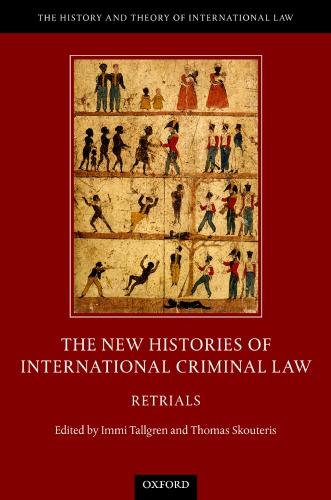
The new histories of international criminal law : retrials First Edition Tallgren
https://ebookmass.com/product/the-new-histories-of-internationalcriminal-law-retrials-first-edition-tallgren/

Experimental and Expanded Animation: New Perspectives and Practices 1st ed. Edition Vicky Smith
https://ebookmass.com/product/experimental-and-expandedanimation-new-perspectives-and-practices-1st-ed-edition-vickysmith/
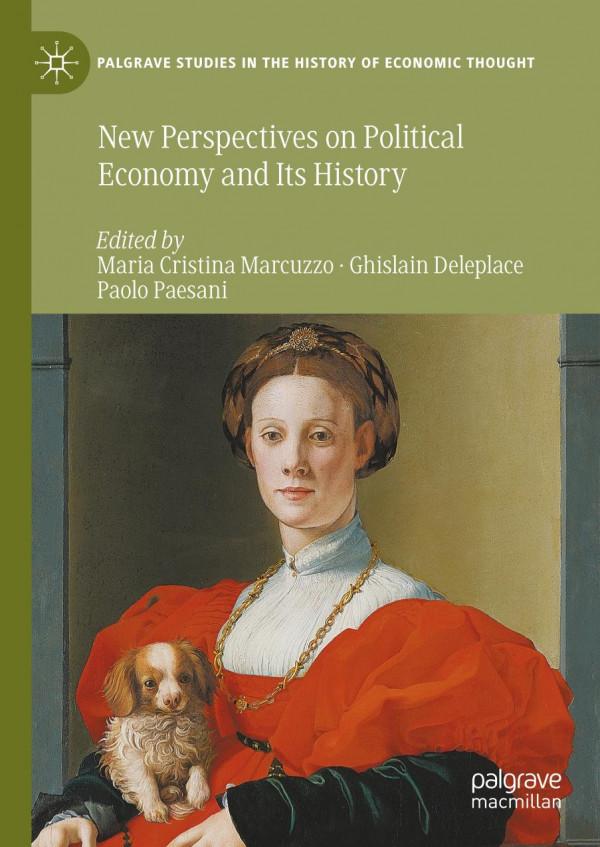
New Perspectives on Political Economy and Its History 1st ed. Edition Maria Cristina Marcuzzo
https://ebookmass.com/product/new-perspectives-on-politicaleconomy-and-its-history-1st-ed-edition-maria-cristina-marcuzzo/
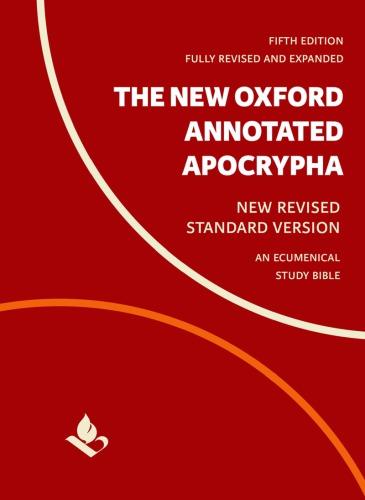
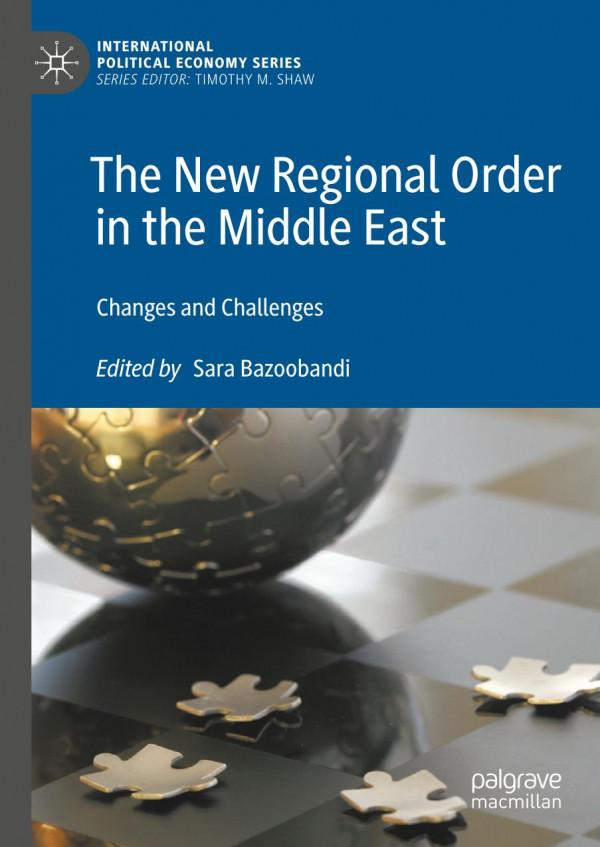
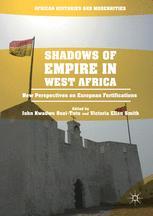
The New Oxford Annotated Apocrypha: New Revised Standard Version 5th Edition Edition Michael D. Coogan (Ed.)
https://ebookmass.com/product/the-new-oxford-annotated-apocryphanew-revised-standard-version-5th-edition-edition-michael-dcoogan-ed/
The New Regional Order in the Middle East: Changes and Challenges 1st ed. 2020 Edition Sara Bazoobandi
https://ebookmass.com/product/the-new-regional-order-in-themiddle-east-changes-and-challenges-1st-ed-2020-edition-sarabazoobandi/ Shadows of Empire in West Africa: New Perspectives on European Fortifications 1st Edition John Kwadwo OseiTutu
https://ebookmass.com/product/shadows-of-empire-in-west-africanew-perspectives-on-european-fortifications-1st-edition-johnkwadwo-osei-tutu/




John D. Haskell Akbar Rasulov Editors

Special Issue: New Voices and New Perspectives in International Economic Law


EuropeanYearbookofInternationalEconomic Law
SpecialIssue
SeriesEditors
MarcBungenberg,FacultyofLaw,SaarlandUniversity,Saarbrücken,Germany
MarkusKrajewski,FacultyofLaw,UniversityofErlangen-Nuremberg,Erlangen, Bayern,Germany
ChristianJ.Tams,SchoolofLaw,UniversityofGlasgow,Glasgow,UK
JörgPhilippTerhechte,Competition&RegulationInstitute,LeuphanaUniversität Lüneburg,Lüneburg,Niedersachsen,Germany
AndreasR.Ziegler,CDCEI-Droit,InternefBuilding,Université deLausanne, Lausanne,Switzerland
TheEuropeanYearbookofInternationalEconomicLaw(EYIEL)isanannual publicationinInternationalEconomicLaw,a fieldincreasinglyemancipatingitself fromPublicInternationalLawscholarshipandevolvingintoafully-fledged academicdisciplineinitsownright.Withtheyearbook,theeditorsandpublisher intendtomakeasigni ficantcontributiontothedevelopmentofthis “new” discipline andprovideaninternationalreferencesourceofthehighestpossiblequality. TheEYIELcoversallareasofIEL,inparticularWTOLaw,ExternalTradeLawfor majortradingcountries,importantRegionalEconomicIntegrationagreements, InternationalCompetitionLaw,InternationalInvestmentRegulation,International MonetaryLaw,InternationalIntellectualPropertyProtectionandInternationalTax Law.Inadditiontotheregularannualvolumes,EYIELSpecialIssuesroutinely addressspeci ficcurrenttopicsinInternationalEconomicLaw.
Moreinformationaboutthissubseriesat http://www.springer.com/series/8848
JohnD.Haskell • AkbarRasulov
Editors
NewVoicesandNew PerspectivesinInternational EconomicLaw
Editors JohnD.Haskell SchoolofLaw
UniversityofManchester Manchester,UK
AkbarRasulov SchoolofLaw
UniversityofGlasgow Glasgow,UK
ISSN2364-8392ISSN2364-8406(electronic) EuropeanYearbookofInternationalEconomicLaw
ISSN2510-6880ISSN2510-6899(electronic) SpecialIssue
ISBN978-3-030-32511-4ISBN978-3-030-32512-1(eBook) https://doi.org/10.1007/978-3-030-32512-1
© SpringerNatureSwitzerlandAG2020
Thisworkissubjecttocopyright.AllrightsarereservedbythePublisher,whetherthewholeorpart ofthematerialisconcerned,specificallytherightsoftranslation,reprinting,reuseofillustrations, recitation,broadcasting,reproductiononmicrofilmsorinanyotherphysicalway,andtransmission orinformationstorageandretrieval,electronicadaptation,computersoftware,orbysimilarordissimilar methodologynowknownorhereafterdeveloped.
Theuseofgeneraldescriptivenames,registerednames,trademarks,servicemarks,etc.inthis publicationdoesnotimply,evenintheabsenceofaspecificstatement,thatsuchnamesareexemptfrom therelevantprotectivelawsandregulationsandthereforefreeforgeneraluse.
Thepublisher,theauthorsandtheeditorsaresafetoassumethattheadviceandinformationinthis bookarebelievedtobetrueandaccurateatthedateofpublication.Neitherthepublishernorthe authorsortheeditorsgiveawarranty,expressedorimplied,withrespecttothematerialcontained hereinorforanyerrorsoromissionsthatmayhavebeenmade.Thepublisherremainsneutralwithregard tojurisdictionalclaimsinpublishedmapsandinstitutionalaffiliations.
ThisSpringerimprintispublishedbytheregisteredcompanySpringerNatureSwitzerlandAG Theregisteredcompanyaddressis:Gewerbestrasse11,6330Cham,Switzerland
Introduction:TheDisciplineofInternationalEconomicLaw ataCrossroads 1
AkbarRasulov
TheOrdo-LiberalOriginsofModernInternationalInvestmentLaw: ConstructingCompetitiononaGlobalScale 37 NtinaTzouvala
AHistoryofFoodSecurityandAgricultureinInternationalTrade Law,1945–2017 ........................................... 55 MichaelFakhri
TheAuthorityofLanguageinInternationalLaw:FromSovereignty toEconomicCertainty ...................................... 91 AtheneRichford
TakingLocalExpectationsSeriously:AFreshStartforForeign InvestmentGovernance? 113
NicolásM.Perrone
HowDoHostStatesRespondtoInvestmentTreatyLaw? SomeEmpiricalObservations 133 MavludaSattorova,MustafaErkanandOhiocheoyaOmiunu MamatasandOthersv.Greece:HowtheEuropeanCourtofHuman RightsCouldChangeSovereignDebtRestructuration .............. 153 AlexandreBelle
DoingThingswithPoliticalEconomy(asaPublicInternational LawAcademic) ........................................... 173
JohnD.Haskell
SocialConsensusintheEMU:TheConstitutionalTenets ofaCurrencyUnion
MariaTzanakopoulou
Introduction:TheDiscipline ofInternationalEconomicLaw ataCrossroads
AkbarRasulov

Abstract Oldcertaintiesaremeltingaway.Anerahasdrawntoaclose.Thefoundationsoftheglobaleconomicsystemarerapidlychanging.Theopeningofintellectual horizonsthathascomeinthewakeoftheseepochalshiftscallsforafundamental rethinkingofthemainfunctionsandtasksofinternationaleconomiclaw(IEL)asa disciplinaryproject.Italsocallsforanewexplanationofinternationallaw’ssystemic potential,power,andeffectivityinthecontextofcontemporaryglobalgovernance. Howdoesinternationallawinfluencetheworkingsofinternationaleconomicgovernance?Whatarethemainwaysinwhichitcanimpactonthecourseofglobal economicaffairs?Drawingonthetraditionsoflegalrealism,Marxism,andclassicallaw-and-economics,thisessayoutlinesafour-foldtheoryofIEL’sregulatory effectivity:IELasaprice-settingmechanism,IELasamechanismforthestructuringofopportunities,IELasamechanismofideologicallegitimation,andIELasa mechanismofdiscipliningandinterpellation.Thegoalofthistheoreticalprojectis topromoteanintellectualrecalibrationofIEL’sdisciplinaryambitalongfundamentallyfunctionalistlines:thedisciplineofIELshouldstudyeverythingthatpertainsto howtheeffectivelegalrealitiesofglobaleconomicgovernancearesetup,howthey operate,andhowtheyareproduced.Thedrearinessofthedéjàvuonefeelswhen lookingatthetraditionalIELscholarshipwouldhaveprobablyfeltalotmoretolerablehadwesomehowbeenabletomusterthesensethattheendlessreproduction oftheestablishedparadigmmighteventuallyleadtosomethingtangiblygoodand positiveintheexternalworldoutsideourdebates.Butbyandlarge,weknow,that issimplynottrue.Andsothequestioninevitablyarises:ifallofthatwhichwehave gotusedtopractisingasascholarlycommunityisstillgettingusnowherebetterthan wherewehavebeenbefore,whynottrysomethingdifferent?
1 See,e.g.,Authers(2018),Sandbu(2017),Beattie(2009),BeffaandRagot(2008),Wolf(2008).
A.Rasulov(B)
SchoolofLaw,UniversityofGlasgow,Glasgow,UK
e-mail: akbar.rasulov@glasgow.ac.uk
©SpringerNatureSwitzerlandAG2020
J.D.HaskellandA.Rasulov(eds.), NewVoicesandNewPerspectivesinInternational EconomicLaw,EuropeanYearbookofInternationalEconomicLaw, https://doi.org/10.1007/978-3-030-32512-1_1
1TheEndofanEra:IdeologyandHysteria
intheEuropeanPublicDiscourse
Anerahascometoanend.Thefoundationsoftheglobaleconomicsystemhave shifted.Thereignofneoliberaleconomics,wearetold,hasdrawntoaclose.The mindlessworshipofthemarketshasstopped,andtheoldThatcheritemantrathat thereisnoalternativenolongerseemslikeaself-fulfillingprophecy.Withmostofthe world’sadvancedeconomiesrepeatedlyslidinginandoutofrecessionandBiblicalscalefaminesonceagainbecomingarealisticprospectacrossvariouspartsofthe globalSouth,theoldcertaintiesofNewFinanceCapitalism—theHardt-and-Negrian worldofborderlesspolitics,omniscientmarkets,postnationalglobalefficiencies, andtheendlesscycleoffluidself-reinvention—arequicklymeltingaway.Eventhe FinancialTimes commentariathavestartedtoacknowledgeasmuch.1
Duskhasdescendedovertheglobaleconomicorder,andMinerva’sowlonce againhastakentoflight.Andwhataviewopensbeforeitseyesasitrisesnow overEurope.WhichevercorneroftheEuropeanUnionitmayturnto,awaveof unstoppablemoralpanicseemstobespreadingacrossthecontinent’spublicspaces andthe‘thinkingclasses’thatpopulatethem.Ascentofhysteriahangsheavyinthe air:thenewEuropeanorderthatwassopainstakinglyforgedintheaftermathofthe 2003TreatyofAccessionisfallingapart.
Proudlyliberalinitsself-declaredidentity,unabashedlysupranationalinitspoliticalaspirations,thenewEuropeoftheearly2000s—theEuropeof‘freedom,security, andjusticewithoutinternalfrontiers’,of‘pluralism,non-discrimination,tolerance’, anda‘socialmarketeconomy’—hascomeunderattack,viciouslyambushedbythe forcesofreactionaryanti-internationalismandthefarright.
Brexit,2 Salvini’sLeague,3 the AlternativefürDeutschland, 4 thePolishjudiciary crisis5 —whereveronelooks,oneseesthesamedisturbingsigns.Virulentnationalism,far-rightpopulism,nativism,andxenophobiaareontheriseeverywhere.The basicpatternisnothardtomakeout:thetargetoftheattackisnotlimitedtothe ideaofasupranationalEurope.Brexitandthe FrontNational mayhavebeenthe harbingersofthisnewminidarkage,butthe‘MakeAmericaGreatAgain’crowds andtheUS-ChinatariffwararehardlyasymptomofapurelyEuropeanmalady. Thetrendwearewitnessinghasamuchwidergeopoliticalandideologicalfootprint. Whatiscomingunderattackhere,basically,weareinformed,isthe veryideaofthe LiberalWorldOrder andtheaccompanyingpromiseofanon-partisanpoliticsofthe universalprogressforall:humanrights,multiculturalism,afreeglobaleconomy,an opensociety.6
2 SeeO’Rourke(2019),RamiroTroitiñoetal.(2018),Sampson(2017,p.163).
3 SeeSchumacher(2018),Stille(2018).
4 SeeAmannetal.(2018);Schumacher(2017).
5 SeeHegedüs(2019),Byrneetal(2018),Zalan(2018),Robins-Early(2018).
6 SeeSzewczyk(2019,p.33),Barber(2019),Jones(2018),El-Erian(2018).
Thenarrativetropesarefamiliar,evenifthetonesometimesisnot.7 Dystopianism isthegenre dujour.BetweenTrump’stravelban8 andOrban’s‘borderfence’,9 betweentheriseofScottMorrisoninAustraliaandJairBolsonaroinBrazil,the returnintogovernmentoftheAustrianFreedomParty,10 andthegrowingfrenzy surroundingtheUSattacksontheWorldTradeOrganization,11 thepicturepainted bythisnewlyemergentdiscourseofhysteriaisthatofanall-encompassing,marchof-history-interruptingglobalcrisis.Globalisationhasbeensuspended.Theproject ofEnlightenmentandmodernityitselfhavebeenputonhold.Lessthanageneration ago,in2000,theelectoralsuccessoftheFreedomPartyanditssubsequententryinto theAustriangovernmentcoalitiontriggeredawaveofloudinternationalprotests.12 In2018,therewasbarelyablip:thenotionofaright-wingpartygainingsignificant governmentpresenceinaEuropeanstateseemstohavebeenutterlynormalised. MatteoSalviniisnowthedeputyprimeministerofItaly.MarineLePenreached thesecondroundofpresidentialelectionsinFrance.GeertWilders’s Partijvoor deVrijheid isthesecondlargestpartyintheDutchparliament.Theconclusionis impossibletomiss:‘[t]hedominoesaretoppling,oneafteranother’,13 fascismand nativismaregoinginternational.14
Tobesure,thisspreadingpatternof‘backlashagainstthesilentrevolution’15 ofliberalglobalizationineachcaseappearstohaveawholeraftoflocaldriving factors.Buttheideologicalformsthroughwhichitisexpressedclearlyseemto enjoyauniversalappeal.Xenophobiaandnationalismtodayareunquestionably globaltrends;thesamealsogoesforautocraticpopulism.16 Thehistoricalprocess whoseapparentcrestingwearewitnessing,wearetold,inshort,isoneofatruly epochalandworld-historicsignificance.Onceagain,theinternationalcommunity— humanity,theworldatlarge—isapproachingaglobalinflectionpoint.And,once again,likesomanytimesbefore,thefutureoftheworld—‘obviously’—willbe decidedbywhathappensin‘Europe’.
Seenfromthisangle,thelogicofthisnewlyemergingnarrativecomplexseems asoldastheliberalpoliticaltraditionitself.Ifmoralhysteriaiswhatitlookslike fromthefront,knee-jerkEurocentricitycertainlyseemstobeitsmostimportant definingthemefromtheback.Ratherthanbeingdiagnosedastheproductof,say,
7 Cf.MoynandPriestland(2017):‘SinceDonaldTrump’selection,theUnitedStateshasbeen grippedbytyrannophobia.Conspiraciesagainstdemocracyareeverywhere;truthisundersiege; totalitarianismismakingacomeback;“resistance”isthelastrefugeofcitizens.’.
8 SeeLiptak(2017).
9 SeeSaeed(2017).
10 SeeAtkinsandKhan(2017),Riegert(2017).
11 SeePayosovaetal.(2018);Baynes(2018).
12 SeeBurchill(2001,p.79).
13 SeeRiegert(2017).
14 SeeShafak(2019).
15 SeeNorrisandInglehart(2019).
16 SeeMounkandFoa(2018).
interrupteddecolonization,anaftershockoftheendoftheColdWar,orahistoricallyunparalleledcombinationofbadlymanagedpost-industrialeconomictransition,heavilyneoliberalizedstatecraft,andsupranationaltechnocratismuniqueto thewestEuropeancontext,thesteadyslidingofEuropeansocietiesintothedark vortexofreactionarynativism,xenophobia,andright-wingpopulismisconsistently presentedasHistory’sgravefinalwarningfortheworldasawhole:asignofthe impendingarrivaloftheFascistInternational.Itisnotjustthe‘newEurope’project thathascomeunderthreat,buttheideaofProgressitself.Theimplicationsseem unmistakable.Thestakescouldnotbehigher,thedangercouldnotbemoreobvious. Thedividinglinesare—anddefinitelyoughttobeiftheyaren’t—hardening,and everyone,especiallythe‘thinkingclasses’,mustchoosenowtheirside.Thedaysof self-indulgentcontrarianismareover.
Everythinghangstogethernow:democracy,humanrights,theruleoflaw,thesinglemarket,dueprocess,greeneconomics,freetrade,propertyrights,labourrights, the‘evercloserunion’.TosavetheEnlightenmentvaluesoffreedom,equality,and justice,wemustdefendeachandalloftheseideologicalmonumentsoftheliberal worldorderasonesinglepackage.Toprotecthumanrights,onemustdefendthesinglemarket.Toprotecttheenvironment,onemuststrengthenthe‘evercloserunion’. Tariffwarsareathreattomulticulturalismanddemocracy.Economicnationalism isthegatewaytoauthoritarianism.Fascistnativismalwayswalkshandinhandwith tradeprotectionism.Attacksoninternationaljudicialinstitutionsareanassaulton theveryideaoffreedomandthedueprocessoflaw.
Andthus,withoutanyfussorunnecessaryhaste,aremarkablefeatofgrandiose ideologicalprogrammingisperformedrightinfrontofoureyes.Aneatsleight-ofhandbyanystandardofappreciation.Evenifitisnotveryoriginalintermsofits design—itsbasicformulaiscloselymodelledonthatofRolandBarthes’s‘Operation Margarine’17 —itistrulyefficientinitsexecution.
Rememberhow‘OperationMargarine’works:
Itisakindofhomeopathy:onecuresdoubtsaboutthe[EstablishedOrder]bytheveryillsof the[EstablishedOrder].Oneinoculatesthepublicwithacontingenteviltopreventorcure anessentialone.…Alittle‘confessed’evilsavesonefromacknowledgingalotofhidden evil.
Onecantraceinadvertisinganarrativepatternwhichclearlyshowstheworkingofthis newvaccine.ItisfoundinthepublicityofAstramagazine.Theepisodealwaysbeginswith acryofindignationagainstmargarine:‘Amousse?Madewithmargarine?Unthinkable!’ ‘Margarine?Yourunclewillbefurious!’Andthenone’seyesareopened,one’sconscience becomesmorepliable,andmargarineisadeliciousfood,tasty,digestible,economical,useful inallcircumstances.Themoralattheendiswellknown:‘Hereyouare,ridofaprejudice whichcostyoudearly!’
ItisinthesamewaythattheEstablishedOrderrelievesyouofyourprogressiveprejudices. TheArmyandabsolutevalues?Itisunthinkable:lookatitsvexations,itsstrictness,[the] blindnessofitschiefs.TheChurch,infallible?Alas,itisverydoubtful:lookatitsbigots,its powerlesspriests,itsmurderousconformism.Andthen‘commonsense’makesitsreckoning: whatisthistriflingdrossofOrder,comparedwithitsadvantages? …Whatdoesitmatter, 17 SeeBarthes(2000,p.41).
afterall,ifmargarineisjustfat,whenitgoesfurtherthanbutter,andcostsless? Whatdoesit matter,afterall,ifOrderisalittlebrutaloralittleblind,whenitallowsustolivecheaply?18
Thenarrativeofideologicalhysteriafollowsthesamebroadpattern.Thisproject ofthe‘newEurope’,ittellsus—itsunderlyingpoliticaleconomy,itsinstitutional architectureandself-servingbureaucraticelites—iscertainlynotbeyondreproach.It hasmanyfaultsandshortcomings,nodoubt.Butnowisnotreallythetimetogettoo loudcriticizingit:justlookatwhoiswaitinginthewings,whomyouwillbeaiding andabettingifyoupressonwithunderminingthelegitimacyofthe‘newEurope’. Woulditnotbepreferableifalltheprogressiveforcesunitedandclosedtheirranks, atleasttemporarily,untiltheydefeatedthecommonenemy?(Whatdoesitmatter, afterall,iftherulebydirecteffectisnotexactlyaparagonofdemocracyandthe institutionalmechanicsofSchengeniscompatiblewithsomuchbrutalitytowards therefugeescrossingtheMediterranean—whatdoesitmatter,‘whenitallowsusto livecheaply’?)
Thesub-surfacemessagingseemsasremarkableforitssimplicityasforitscynical opportunism.Astheverynotionofrejectingtheestablishedstatusquoismadede factosynonymouswithsupportingtheforcesofthefarright, classicalliberalideals suchasequality,workers’rights,anddueprocessaresurreptitiouslylumpedtogether withawholehostof neoliberalgovernancestructures,fromtheSchengencommon travelareatotheStabilityandGrowthPact,sothatthelong-establishedideological credentialsoftheformercanhelpcross-subsidizethelegitimacydeficitsofthelatter. Asthedifferencesbetweenthetwoordersofphenomenaarethusrepeatedlyflattened outanderased, theactofdefendingthepoliticaleconomyoftheEuropeanintegrationproject somehowinevitablybecomesthe practicalstand-inforthebroader programmeof‘fightingfascism’,‘resistingautocracy’,and‘stoppingxenophobia’.
Theresultsareunmistakable.Ontheonehand,thecriticismofanyoneaspectof theestablishedEuropeanpoliticalordercannowbeeffortlesslydeflectedbypointing towardstheunquestionableanti-parochialismofitsinstitutionsandtheiranimating ethos.Ontheotherhand,anylegitimacydeficitsperceivedinitsunderlyingpolitical economycanaseasilynowbecross-subsidizedbytheformulaicinvocationofits loftycommitmentstothevaluesofhumanrights,justice,equality,andsolidarity. Thecreationofafakemonolithaesthetics—thenotionthatonecanenjoythe‘good’ partsofthenewEuropeprojectonlyifoneacceptstheexisting‘package’inits entirety—helpsinduceanenduringsenseofloyaltythatappearstobeatthesame timeperfectlycynicalandentirelyeffective.19
Inanintellectualframeworkwhereavocaloppositiontotheideologyofliberal globalisationcanonlycomefromtheforcesofthefarright,thecentre-rightlonger needstofearanychallengesfromtheleft,sinceitnowcarriesthebriefforthevery ideaofFreedomitself:tofailtomarchindefenceoftheever-closerunionisto markoneselfasanenemyofhistoryandprogress.Asthemoralhysteriafuelled bythispseudo-ManichaeanworldviewtransformsitselfintoastarkUsvs.Themstylementality,theideologicaltollonthescholarlycommunitiesengagedinthe
18 SeeBarthes(2000,pp.41–42).
19 SeeSloterdijk(1987,pp.3–8).
discussionoftherelatedissuesinevitablygrows.Ittakesanincreasingmeasureof boldnessandrecklessnesstoattempttobreakfreefromthetermsofthedominant discoursebyinsistingonone’s rightnottoacceptthefakemonolithnarrative.And yetitispreciselythisrightthatsomanygenerationsoflegalscholarsbeforeushave foughtsohardtosecure.
Theprocessoflucidlegalthoughtalwaysstartswithanactofresistance:acommitmenttobracketingoutofmoralpanicsandtherejectionoflazygeneralities. Theremaynotbesuchathingastheroyalroadtotruth,buttheadvancementof knowledge,inlaw,(still)alwaysbeginswiththeunqualifiedinsistenceontheright toscepticismandthedutyofanalyticalclarity.
Theacceptanceoffakemonolithsisabadhabitinanylineofscholarlyinquiry, allthemoresointhefieldofinternationallaw.Thecultureofintellectualhysteria inducedintheEuropeanpublicdiscoursebytheriseoffar-rightpopulistforces andtheirdeclaredaversiontowardsvariousinternationalstructuresshouldnotbe allowedtocloudoursenseofjudgementastotheself-evidentautomaticity,letalone structuralirreversibility,oftheapparentcausalconnectionbetweenthem.Aswe transitionfromtheplaneofpoliticaljournalismandthink-tankspinnarrativesinto thatofcriticallyconsciouslegalanalysis,thefirstquestionweshouldbeaskingisnot howmuchofourloyaltytheestablishedliberalworldorderanditsclassstructures deservenowtheyhavecomeundersuchasustainedattack,butwhatexactlythe economic,political,andhistoricallegitimacyofthisorderisotherwiseandwhat exactly,therefore,wemaybemissingtheopportunitytochallengeanddiscussifwe agree,outofpanicandfear,nottoraisethissortofquestionsanymore.
TheendoftheEuropeanliberalmodelandits‘socialmarketeconomy’,likethat ofnewfinancecapitalism,mayormaynotbecomingsoon,anditmayormaynotbe comingatthehandsofright-wingpopulism.Butevenifitishappening,itcertainly doesnotmeanthatasinternationallawscholarsweshouldnowautomaticallyjoin inidealizingitandromanticizingitsbrutalandcynicalrealities.Lesttheintellectual statusofourdisciplineisthusirreversiblycompromised,neithertheestablished Europeanorder,northebroaderliberalglobalistparadigmofwhichithasbecome suchaprominentrepresentation,shouldbegettinganykindofhallpassinthespace ofourcriticalreflections.
2BetweentheThreatandthePromise:TheOpening oftheIntellectualHorizonsandtheInevitability oftheHistoricalTurn
Thegreatestlucidityintheoreticalthought,asHegelhasargued,comesusuallyafter therespectivehistoricalperiodhasreacheditslogicalendpointandthedominant worldviewoftheepochcannolongerstiflethespiritofcriticalinquiry.20 Nomoment
20 SeeHegel[2008,p.85(89)].
canbeasrewarding—butalsofraughtwithperil—forthecriticalmindasthatwhich comesattheendofanera.
TheEstablishedOrder’sattempttoinduceloyaltybycultivatingapoliticsof ‘enlightenedfalseconsciousness’21 isnotanaccident.Itisasignofacertainkind ofhistoricaltransformation.Thepushfortheconsolidationoffakemonolith-style theoreticalaestheticsintheplaneofpublicdiscoursetodayisproceedingsofiercely preciselybecauseintheplaneofsustainedscholarlyinquirythiscause,toalarge extent,haslongbeenlost.
Acrossanever-broadeningrangeofdisciplinaryfields,thetermsofintellectual debatenolongerseemaccountabletotheideologicalneedsanddemandsofthe post-ColdWarliberalinternationalorder.Thoughhardlylinearinitsprogression, thistrendoftheoreticallooseningoftheestablishedparadigmhascertainlyreached thefieldofinternationallegalstudies.Oldbarriersthatfornearlyacenturyhad internationallegalthoughtcorralledinthenarrowquartersofthevoluntaristpositivisttraditionhavebeenprogressivelydisintegratingoverthecourseofthelast thirtyyears.22 Wherepreviouslyonewouldhavefoundonlyahandfulofstaleideas repeatedmechanicallyfromonecontexttoanother,dozensofnewapproachesand theorieshavenowemerged,blossomingboldly,dazzlingtheincredulousonlooker withtheirbright,freshcolours.Havingfirstariseninotherfieldsofinternationallegal studies,thiscultureofintellectualpluralisminrecentyearshasalsoarrivedonthe shoresofinternationaleconomiclaw(IEL).FromanalyticalMarxismtoPolanyian institutionalism,frompostcolonialcriticismtoempiricaljurisprudence,globalvalue chainanalysistoFoucauldianhistoriography,countlessnewschoolsandsourcesof inspirationarenowforcingtheirentryintoIELstudies.23
Howshouldonereacttothistrend?Itisapopularconventionofliberalhistoricism toapproachsuchkindofdevelopmentswithacertainsenseofenthusiasm.After all,whatcouldbemoredeservingofapprovalandcelebrationthanthelongoverdue openingofintellectualhorizons?Thedissolutionofastaleorthodoxyisthearchetypal exampleofwhatintheliberalworldviewwouldcountasamomentofemancipation andredemption.Themostelementarylogicofliberaldramaturgymakesitinevitable thattheonlyadmissiblereactiontosuchaprocessshouldbeoneofexcitementand enthusiasm.But,asEricHobsbawmremindsus,thedemandsofdramaandreality rarelyarethesame.24 Noteverythingthathappensfollowingthedissolutionofan orthodoxyorthefallofadogmawillbeexperiencedbytherespectivecommunity asanunquestionablegood.
Foreveryscholar,livingattheendofanerainevitablycomesataprice.The looseningofthedisciplinarycanoncanbringintellectualexhilaration.Butitcanalso
21 SeeSloterdijk(1987,p.5).
22 Forfurtherbackground,seeRasulov(2012,p.151).
23 Forfurtherdiscussion,seeHaskellandRasulov(2018,p.243).Forillustrations,seeVandenMeersche(2018),Rasulov(2018),Brabazon(2017),Krever(2011),andMieville(2005).Animportant elementofthisprocessoftheoreticalopeningisreflectedinthefactthatagrowingbodyofscholarshipaboutIELisnowproducedbynon-lawyersandscholarswhoseprimarydisciplinarytraining isinanotherfield.See,e.g.,Slobodian(2018),Moudud(2018,p.289).
24 SeeHobsbawm(1997,p.354).
behighlydisorientating.Theawakeningofthecriticalspiritwhichtheweakening oftheorthodoxyinvitesoftenbringsinitswakeanethicsofrelentlessiconoclasm, aculturethatvalorisesintellectualcontrarianismandinsistsonchallengingevery establishedidea,everyreceivedwisdom,everycommonassumptionasamatterof principle.Butastheprocessofquestioningacceleratesandspreads,theprogrammeof ruthlessself-reflectioncaneasilymorphintoanideologyofradicaldoubt,andinthe fieldofacademicknowledge-productiondoubtingeverythingcanbeaveryexpensive luxury.Ifacommunityofscholarsstartsdoubtingeverybeliefandassumptionithas inheritedfromitspredecessors,howfarwillitbeabletogetoninformulatingits ownresearchagenda?
Howmuchwillitslowusdownintermsofourabilitytoadvancedourinquiries, toreasonandcommunicatewithoneanother,totesthypothesesandformulateconclusionsifwecannolongertakeforgrantedanyofthesharedframesofreference thatpassedontousfromourdisciplinarypredecessors?Ifwecannolongerrely onanypreviouslyestablishedtruthtests,howconfidentcanwebeinourability todistinguishknowledgefromdelusion,realityfromfantasy,sensefromnon-sense, valuableinsightandsoundpolicyfromrawprejudice?Whenoldcertaintiesnolonger apply,onealwaysrunstheriskofdiscoveringthatfartoomanynewtruthsseemtobe correctallatonce.25 Confusion,cacophony,disorientation,deafeningwhitenoise, theinevitabilityofhavingtoputupwithcountlesspotentialcharlatansandimpostors—thetheoreticalandpsychologicalpriceoflivingthroughaperiodofrapidly cascadingparadigmbreakdownsiscertainlynotinsignificant.
Onewayinwhichinternationallawscholarshavebeenabletodealwiththissort ofchallengesinrecenttimeshasbeenbyexecutingwhathascometobeknown asthe‘turntohistory’.Themoreconfused,disorientated,andanxiousaboutits traditionaltruths,values,andassumptionsthegivensub-fieldorsegmentofthe internationallegaldisciplinewouldbecome,themoreitsmembershavetendedto turntheirattentiontothestudyofitspast.26
Thoughitmayseemotherwiseatthefirstglance,thereisnothingsimpleor trivialaboutthisparticulartheoreticalstrategy,ofcourse.Thekindofhistorywhich internationallawyershavetendedtowritediffersverysignificantlyfromthekind ofhistorythatistypicallyproducedbyprofessionalhistorians.Thescaleofthe differencesnotinfrequentlyhasledtoconflict:thelattertypicallydisparagethe formerasarrogantimpostorswholackeventhebasicgraspofthe‘historicalmethod’, theformerinturnfrequentlydismissthelatterforbeinglegalfetishistswhohaveno cluewhatthelawreallyisandhowthelegaluniverseactuallyworks.27 Whichside onechoosestosupportinthisstruggle,intheend,isprobablyirrelevant.Though itcanhavethemostimmediateimplicationsforone’scareerprospects,inthemore abstractsense,neithersidecanreallywin.Inthepostmodernage,therecanbeno winnersorlosersinthebattleforthe‘truth’.Nosinglewayofinteractingwith
25 SeeBall(2007,p.7).
26 SeeLesaffer[2007,p.27(29)].
27 Forfurtherdiscussion,seeVadi(2017,p.311),Koskenniemi(2013,p.215),Lesaffer(2007, p.27).
thepastcananymorebeconsideredsuperior.Everydisciplinegetsthe‘method’it deserves.Neitherthelawyers,northehistoriansgettohavethefinalsayoverhowthe enterpriseofinternationallegalhistoriographyoughttobeconstructed.‘Lawyers’ legalhistory’hasasmuchofarighttoourattentionasthelegalhistoryproducedby trainedhistorians.28
Whatismore,evenwithineachdisciplinaryfield,itseemsimpossiblenowtofind anygroundsonwhichtoestablishasystemoftheoreticalhierarchy:everyschool andtradition—thepositivistsasmuchasthecrits,thereactionariesasmuchasthe progressives,thepostcolonialsasmuchastheliberals—hasasmuchofarightto developitsownsenseofhistoriographyanditsowncultureofhistory-writingasits rivalsandcompetitors.Inthis,internationallawhardlyseemsallthatdifferentfrom academichistory.Whatdoesseparatethetwofields,however,arethepracticalconsequencesthatattachtothisregimeofmethodologicalrelativism.Unlikeinacademic history,ininternationallawtheriseofthiscultureofepistemologicalentitlementto datehasalmostinvariablyresultedinthestrategicdeploymentofhistory(asagenre ofscholarlyinquiry)forthepurposeof intra-disciplinaryideologicalprogramming, thatistosay,fortheproductionof‘coded’rhetoricalinterventionsaimedforthemost partatovercomingthelossofwhateversenseofnormativecertaintytheinternational legaldisciplinemayhavepreviouslyhadorseemedtoworktowardsacquiring.
Historyasthecontinuationofideologybyothermeans:thereisacertainparallel herewithGrantGilmore’sportrayalofthefirstwaveofhistoricalturnsinmodern legalacademia,theonethat,ashesawit,beganinthelate1950s,roughlyaroundthe sametimethatthe‘ageofanxiety’startedreachingitsapogee.‘Duringperiodsof apparentsocialdissolution’,writesGilmore,‘thetraditionalists,thetruebelievers, thedefendersofthestatusquo,turntothepastwithaninterestquiteasobsessiveas thatoftheradicals,thereformers,andtherevolutionaries.’29 Butwhilebothmostly looktohistoryonlyinthe‘attempttofindoutwhatwentwrong’,theformermostly justwantto‘pro[ve]that,onceuponatime,thingswereasweshouldlikethemto be’,‘[t]heirmessageis:turnbackandallwillbewell’,whilethelatteraremainly preoccupiedwithfindingsomethingthatwouldequipthembetterfortheirupcoming struggles,aninsightthat‘mayhelpuscopewithourobscurepast[aswellasour] unknownfuture’.30
Noteverygenerationdevelopsthesamestructureofdisciplinarypolitics.The worldofAmericanlegalthoughtoftheearly1970sthatGilmorewroteaboutisfar removedfromtheworldofinternationallegalscholarshipofthelate2010s.Andyet onecancertainlymakeoutapatternverysimilartotheoneGilmoretracedforming acrossdifferentfieldsofinternationallegalscholarshiptoday:frominternational
28 Notallhistoriansdisagreewiththisview,ofcourse.See,forexample,Kalman[1997,p.87 (114–117)].
29 Gilmore(1977,p.102).
30 Ibid.
humanitarianlaw31 andthelawofinternationalhumanrights32 tothelawoftreaties33 andthelawofinternationalorganisations34 andtribunals.35 Therecentexplosionof interestinthehistoryofIELandthevarietyofcompetingIELhistoriesthisexplosion hasproduced,36 inthiscontext,onlygoestoshowhowfarthefieldofIELscholarship hasnowbeenintegratedintothewidercomplexofthecontemporaryinternational lawdiscourse.
History-as-the-continuation-of-ideologyandtheturn-to-history-as-an-extensionof-intra-disciplinary-politicsofferaverypowerfulanalyticalframeworkthrough whichtoapproachthequestionofhistoricalturns.Butitiscertainlynottheonly interpretativehypothesisonecanproposeinthiscontext.Likeeveryhistoricalevent, theturntohistoryinmoderninternationallawcanbegivenmorethanonepossibleexplanation.Ratherthanfocusingontheinternalconditionofthediscipline,a differentwayofunderstandingitsappearance,forexample,wouldbetoviewitas aslightlydelayedsymptomoftheradicalculturaldisenchantmentsufferedbythe transnationalideologicalintelligentsiasintheaftermathoftheendoftheColdWar. Theincreasingawarenessofthewholesalebreaktowardsthepastthathadbeen effectedatthelevelofworld-historicprocesses,onthisreadingofthings,would havetriggeredacorrespondingsenseofgeneralculturaldisorientationandthusa greateropeningatthelevelofcommontheoreticalpracticesandtheassociatedprotocolsofdisciplinaryknowledge-production.Theemergenceofaconsiderablebody ofwritingdedicatedtoquestionsofinternationallegalhistory,inthiscontext,would onlybeanaturalconsequenceofthisprocess.Lookingfromthisperspective,37 it wouldbetheinevitablebreakdownoftheearlypost-Cold-Warliberal-modernist culturebuiltaroundthenarrativesofuniversalcosmopolitanismanduninterrupted historicalprogressthatultimatelycompelledthenewgenerationofinternational legalscholarsto have tostartthinking,writing,andspeakinginwaysthatwerefundamentallydifferentfromthoseoftheirpredecessors.Itwouldbethateventalso whichwouldhaveputonthemthepressuretoexecutetheturntohistoryandtostart tryingtofindoutmoreabouttheirdiscipline’srootsandorigins.For,ifthecourse ofhumanhistorycannolongerbeassumedtoproceedalongasingleuninterrupted lineleadingsteadilyfromsavagerytocivilization,prejudicetoreason,conflictto cooperation,nationalismtocosmopolitanism—thenwhat else mightthediscipline havegotwrongaboutitspast?
31 See,e.g.,Mantilla(2017,p.483),Alexander(2015,p.109),Megret(2006,p.265).
32 See,e.g.,Martinez(2012),Moyn(2010).
33 See,e.g.,BowmanandKritsiotis(2018),Craven(2007).
34 See,e.g.,Sinclair(2018,p.841),VanDenMeersche(2018,p.168).
35 See,e.g.,FitzmauriceandTams(2013).
36 See,amongothers,St.John(2018),Howse(2016,p.9),Miles(2013),Clavin(2013);Lang(2011).
37 SeeKoskenniemi(2004,p.61).
3NewVoices,NewPerspectives
Asimportantashistoricallyorientedmodesofinquiryhavebecomeinrecentyears, theideaofthehistoricalturncertainlydoesnotexhaustthefullpotentialofwhat theoreticalheterodoxycanbecome,especiallynotincontemporaryIEL.Apowerful counterbalancingtendencyhasstartedtodevelopinrecentyearsacrossdifferent segmentsofIELscholarship.DrivenlessbythedesiretoreclaimIEL’shidden legaciesandforgottenoriginsthanbythehopeofuncoveringitscurrentcomplexities andmappingoutitsfuturepotentialities,whatliesatitscorearethe questionsof criticalimaginationandalternativefutures.Whatshape,whatcontent,whatkindof politicalorientationshouldtheIELregimeanditsinstitutionalbasisbegiven?As theoldframeworksgivewaytonewstructures,whatsortofnewquestions,concerns, andinterdisciplinaryinfluencesshouldbebroughttothetableinIELscholarship?
Theessayscollectedinthisvolumespeak,withvariousdegreesofdirectness,to bothofthesetendencies:thehistoricalturnaswellasthenewprogrammatic-thought project.Eachofthem,inacertainsense,canbeunderstoodasaproductofbothof thesegenresofinquiry.Intellectually,thisvolumefindsitsoriginsinaseriesofconversationsthathadfirststartedinthesummerof2009,attheBrownInternational AdvancedResearchInstitute(BIARI),inProvidence,RhodeIsland,andcontinued subsequently,withbriefintermissions,acrossdifferentcountries,conferencesettings,andjointwritingprojects.TheinstitutionalcircuitacrosswhichtheseconversationshavetravelledatdifferenttimeshasincludedtheHarvardInstituteofGlobal LawandPolicy(IGLP),theUniversityofGlasgow,ManchesterUniversity,andthe UniversityofDurham.Eachofthesesettingsandtheencountersthattookplacein themandontheirmarginshasleftitsimpactonthevolume.ThereisalargecontingentofIGLPalumniamongthevolume’scontributors,andboththeGlasgowand theDurhamclustershaveleftavisibletraceonthisproject’scompositionaswell.Of the11contributingauthors,three—KonstantinaTzouvala,NicolasPerrone,andJohn Haskell—atvariouspointshavestudiedortaughtatDurham;anotherthree—Athene Richford,AlexandreBelle,andAkbarRasulov—havetaughtorstudiedatGlasgow; five—MichaelFakhri,Tzouvala,Perrone,Haskell,andRasulov—areIGLPalumni; three—Fakhri,Haskell,andRasulov—havealsobeenpartoftheBIARIprogramme. Everycollectiveproject,ultimately,canbeseenasaproductofitsparticipants’ personalambitionsandaspirations.Butitisalsoareflectionoftheirrespectivelifetrajectories.Thescholarsincludedinthisvolumecomefromawidevarietyofnational, educational,ideological,andtheoreticalbackgrounds.Thisisnotjustagroupof EuropeanandNorthAmericanacademics,interdisciplinarianlegalhistorians,or Harvard-trainedpostmodernistssettingouttodeliverthe‘crit’takeonIEL.What thereaderwillfindinthesepages,rather,isacollectiveenterprisethatisalotmore ambitiousandcomplexthananyoftheseconcepts.Ournationalbackgroundsspan Greece,Canada,Colombia,Lebanon,Benin,theUK,Turkey,Belgium,theUS,and Uzbekistan.Ourtheoreticalaffiliationsanddisciplinarysensibilitiesincludeinstitutionaleconomics,doctrinalpositivism,empiricallegalstudies,Marxism,modern moneytheory,legalrealism,postcolonialhistoriography,anddiscoursetheory.Some
ofushavebeeneducatedinWesternEuropeandtheUnitedStates,othersreceived theiracademicandprofessionaltrainingprimarilyintheGlobalSouth.Someof ushavestudiedmostlyundertraditional,black-letter-lawteachers,othersunderthe leading‘crit’scholars.Someofushavereceivedalltheirtraininginlaw,othersalso holddegreesinfieldsasfarremovedfromlawasbiologyandanthropology.Allof us,indifferentways,havebeeninvolvedinacademia,yetmanyofusalsodrawon ourexperienceintheworldsofpractice,activism,andpolicyconsultancyacross numerousdifferentcontextsandjurisdictions.
Thereisnotasinglemouldthatallofuscanbeeasilyfittedinto,andthat,ina certainsense,isalsoanintegralpartofthisproject’sbasicdesignandmethodological wager.Whentheoldtruthsnolongerringtrueandthenewtruthshavenotyet establishedthemselves,morethanonevisiondeservestobeexplored,morethanone theorydeservestobetriedout.
4IEL’sImpactontheGlobalEconomicArena: InternationalLawandtheProductionofGlobal Governance
Howdothedifferentessayscollectedinthesepagesrelatetooneanotherandtothe widerfieldofcontemporaryIELscholarship?Onewaytogoaboutansweringthis questionwouldbebydrawingontheideaof legalstudiesasthestudyofregulatory effectivities
WhenwesaythatIELregulatesacertainissueorsubject,whatexactlydowehave inmindbythat?WhataretheactualfunctionsthatIELperformsfromthestandpoint ofitsrelationshipwithglobalgovernance?Theanswersgiventothesequestionsin thecriticallegaltraditioncangenerallybedividedintofourparts.38 Tounderstand bettertheunderlyingobjectivesandtheoreticalaspirationsofthenineessaysthat follow,itmaybeusefultorevieweachofthem.But,first,whatexactlyshouldone understandbytheconceptofregulatoryeffectivity?
4.1TheTheoryofRegulatoryEffectivity:AFunctionalist RecalibrationofIEL’sDisciplinaryAmbit
Thegeneralideahere,toalargeextent,canbeseenasanextensionofthebroader traditionofLaw-and-Society.39 Thetheorybehindithastwomainparts.Thefirst partfocusesontheconceptofthe regulatoryeffect definedbroadlyasthatstateof affairswhichoccursintherespectivesegmentofthesocio-economicintercourse—in thiscase,whatonemightcallinternationaleconomicrelations(IER)—asaresult
38 Forfurtherdiscussion,seeRasulov[2008,pp.243(290–294)].
39 ForageneralbackgroundtotheLaw-and-Societytradition,seeFeenan(2013);Cotterrell(2002, p.632).
ofitbeingsubjectedtosustainednormativeandinstitutionalordering.Theideathat theprocessoforderingissupposedtobe‘sustained’signalsherethenotionthat theorderlypatternwhichthusemergesismeanttobebotheffectiveandrelatively lasting.Whatwearelookingatisacontinuousprocess,notaone-offmomentary act.Thesecondpartofthetheoryisadirectcorollaryofthefirst:thetaskofIELas afieldofstudyistostudyeverythingthatcontributestothis‘processofordering’, i.e.totheachievementoftheregulatoryeffectinthefieldofIER.40
Notethetwosoftspotsintheproposeddefinition:(i)whatconstitutes‘effective’ ordering,ultimately,isalwaysamatterofempiricaljudgement,i.e.aproductof some kindof social convention;and(ii)whatcountsasthefieldofIERislefthere essentiallyundefined—onceagain,atleastattheinitialstageoftheinquiry,one willhavetodoherewithsomekindofsocialconvention,ratherthanadeductively establishedmentalconstruct.41 Adifferentwayofputtingthiswouldbetosaythat, comparedto,say,legalformalismorvoluntaristpositivism,thebasicmethodology impliedunderthismodelofinquirycannotbeconsidered‘scientificallyrigorous’. Itstheoreticalmatrix,inotherwords,doesnothavethesamedegreeofanalytical clarityorformalself-sufficiencythatonewouldtypicallyexpectfroma scientificallyinclinedinvestigativeproject.
Inmostofmodernsciences,astheFrenchphilosopherLouisAlthusserremarks, oneofthemain‘constitutionalrules’ofknowledge-productionistheideaofselfvalidatingtheoreticalprotocols:
sciences…havenoneedforverificationfrom[any] external practicestodeclaretheknowledgestheyproducetobe‘true’…Nomathematicianintheworldwaitsuntilphysicshas verified atheoremtodeclareitproved…:thetruthofhistheoremisahundredpercent providedbycriteriapurely internal tothepracticeofmathematicalproof,…i.e.bythe formsrequiredbyexistingmathematicalscientificity.42
Bycontrast,thewholeoftheLaw-and-Societytraditionispremisedratherexplicitlyonadistinctlyopen-endedapproachtotheverificationofknowledge:thetruth andfalsehoodofallourideasaboutthelaw—therightandwronginlegalpolicy,the correctandincorrectinlegalreform—canonlybeassessedinreferencetocriteria outside theimmediateplaneofthelegaldoctrineandinstitutions.
Onewayofgraspingtheimplicationsthisfacthashadonthedevelopmentofthe Law-and-Societymethodologywouldtorecalltheargumentproposedbysomeofits earliestandmosteffectiveexpositors,theso-calledlegalrealists.Epistemologically, themostimportantdifferencebetweenlegalformalismandlegalrealism,therealists argued,liesinthefactthatthelatterbyandlargesubscribestoa functionalistepistemology.Whenlaw’sinternalstoryofitselfcannolongerbetakenatitsfacevalue,
40 OnecanalsothinkofthiswayofapproachingthestudyofIELasanextensionofamucholder socio-legaltradition,theso-called‘socialcontroltheory’.SeeGurvitch(1942,pp.23–30).
41 Wordlike‘empirical’and‘conventional’doalotofworkhere.Oneperson’s‘conventional judgment’,ofcourse,isanotherperson’s‘entirelyarbitraryopinion’.Logically,ithastobeaccepted, thereisnotmuchwecandoaboutthat.Noamountofanalyticalrigourortheoreticalprecisioncan protectusagainstthefundamentalarbitrarinessofourstartingdefinitions.Themostwecandois acknowledgethisfactandacceptitsimplicationspragmatically.
42 Althusser[1970,p.11(59)](emphasisintheoriginal).
wenttheargument,theonlywayinwhichwecouldstabiliseourframeofreference whenstudyinglegalevents,discourses,andconceptswouldbetoanchoritinsome formoffunctionalevaluation:the‘truereality’ofeveryinvestigatedobjectcanbe judgedfromthewayitfunctionsinthegivenrespectivecontext.‘Athingiswhat itdoes’.43 Themeaningofanygivenlegalconstructcanbeascertainedinthelight ofitspracticalconsequences.Acourtisastandinginstitutionthatsettlesdisputes bymeansofjudgments,whilefollowingstrictlydefinedproceduresandobserving precedent:whateveritsofficialdesignationmaybeotherwise,ifaninstitutionmeets thesecriteria,itisacourt.44 Alegalrightisanentitlementenforceablebyaneffective remedy:arightthatcannotbevindicatedinthecaseofitsbreachisnotarealright.45
Alegaldutyisasocialencumbrancetheobservanceofwhichisbackedupbyan effectivepenalty:adutythenon-performanceofwhichdoesnotattractanysanctions fortheduty-bearerisnotarealduty.46 Apenaltyiswhatevercausesdisagreeable materialconsequences:anylegalmeasurethatresultsinthematerialdeterioration ofasubject’spurchasingpower,regardlessofwhetherornotitsimpositionwasofficiallyjustifiedinreferencetosomekindoftransgressionormoralshortcomingon thepartofthesaidsubject,istantamounttoalegalsanction:subjectiontoataxora no-faultdutytocompensatecanproducetheexactsame‘experienceofpunishment’ assubjectiontoacriminalfine,exposuretocivilliability,ortheextinguishmentof thelegalcapacitytoalienate.47
Takingcuefromtherealistdemystificationofthestandarddoctrinalcategories, thebasicstartingassumptionofthetheoryofregulatoryeffectivitycan,thus,be definedasaformof conceptualfunctionalism.Themeaningofeveryconcept— includingthatoflaw—hastobesoughtinthebasicsocialconsequencesassociated withit.Themainsocialconsequencewhichistraditionallyassociatedwiththeidea of‘lawness’inmodernusageistheabilityofthegivensystemofnormativeand institutionalstructurestoinduceastateof regulation withinthegivensegmentofthe socialintercourse.48
Proceedingfromthisangle,itdoesnotthenverymuchmatterwhetherornot thoseparticularnormativeandinstitutionalstructuresoneislookingatwouldmeet thestandardlegalpositivistorformalistcriteria.Whatmattersiswhetherthepractical consequenceswhichthesestructuresgiveriseto,empirically,includetheproduction ofregulatoryeffectintherespectivesegmentoneisinterestedinunderstanding.It doesnotmatterwhichparticularstructures,mechanisms,orregimesarebeingputto work:solongasthestateofregulatoryeffectisbeingcreated,thatisallthatmatters.
43 SeeCohen[1935,pp.809(826)].
44 SeeArnold[1932,pp.617(624–631)].
45 See,e.g.,Llewellyn(1930,pp.82–83).
46 See,e.g.,Holmes[1897,p.457(458)],Corbin[1924,pp.501(515–516)].
47 See,e.g.,Hale[1935,pp.149(159–163,168–170,176–179)].
48 Cf.Timasheff(1939,pp.23–24):‘Lawisasocialforce.Itssocialfunctionisthatofimposing normsofconductorpatternsofsocialbehaviourontheindividualwill,andtheaimofjurisprudence istostudythesenorms’.
Putintheseterms,thegeneraltheoreticalframeworkunderpinningtheconcept ofregulatoryeffectivity,onemightsay,isstartingtolookverysimilartoLegal Pluralism.49 Bethatasitmay,thisfact,ultimately,isneitherherenorthere.Appeals toabstractlabelscanneverresolveaconcretecase.Onsomebasiclevel,every internationallawyer,evenHansKelsen,couldbedescribedasalegalpluralist.50 Onewouldneedtosayalotmoreaboutthetheoryofregulatoryeffectivitythanjust thatitisaspeciesoflegalpluralismtoexplainitsfullmethodologicalimplications. So,withaviewtoclarifyingpreciselythisissue,letusnotenowthefollowingthree points:(1)TosuggestthatweshouldapproachthestudyofIELbystudyingthe patternsofitsregulatoryeffectivityistoargue,firstofall,thatwemuststartour inquiryintoIELby mappingout allthedifferentwaysandmechanismsthrough whichastateofregulatoryeffect,i.e.aconditionofsustained,effective,andorderly patterning,canbecreatedinthefieldofIER,throughtheuseofnormativeand institutionalstructuresandmaterials.(2)Adifferentwayofputtingthiswouldbeto saythatallthose normativeandinstitutionalstructuresandmaterials (thestudies object)which empirically (thequestionofintellectualorientation)havebeenshown to triggerorcontribute (theextentofcausality)totheproductionofthestateof internationaleconomicregulation (theinvestigatedconsequence)should,ultimately, deserveourattentionasIELscholars.(3)Notethequalificationthatattachestothe word‘empirically’here.Thereferencetotheneedforanempiricaldetermination oftheproposedcausallinkagesbetweenthestudiedobjectsandtheinvestigated consequenceshouldnotbereadasanadvocacyoftheso-called‘empiricistapproach’ tolegalstudiesoranendorsementofwhatinrecentyearshascometobeknownas the‘empiricalturnininternationallawscholarship’.51 Itsaspirationtopopularisethe ideaofempiricallegalstudiesaside,thevastmajorityofthisbodyofscholarshipto datehasshownitselftobeasbackward-lookingandformalistinitsconstructionof internationallaw’snormativeandinstitutionalmaterialsasthevoluntaristpositivism oftheyesteryearandthushasnothingofvaluetocontributetothefunctionalist investigationofIEL’sregulatoryeffectivity.
Tostudyallnormativeandinstitutionalstructuresthathelpinduceandmaintain astateofregulationintheinternationalpoliticaleconomy—statedinsuchterms, themaintheoreticaltaskofIELasafieldofdisciplinaryinquiryacquiresarather differentphilosophicalcomplexionfromanythingthatonewouldusuallyencounter inmainstreamIELtextbooks.52 Inthefirstplace,thereis,ofcourse,theobvious epistemologicalchangeinthestructureofthedisciplinaryenterprise.Inthesecond place,thereisalsotheradicalchangeintheontologicalstatusoftheinvestigated real-worldphenomenon.
49 Onlegalpluralism,see,generally,Merry(1988,p.869),Tamanaha(2000,p.296).
50 See,generally,Kelsen[1953,pp.1(13–32)](acknowledgingthesimultaneousco-existenceof multiplespeciesoflegalorders,withinternationallawidentifiedasa‘primitivelegalsystem’and nationallegalordersas‘moredeveloped’legalsystems).
51 SeeShafferandGinsburg(2012,p.1),Franck(2008,p.767).
52 See,e.g.,Ascensio(2018),Lowenfeld(2008).
WhatdoesIELasareal-worldphenomenontodaylooklikefromthestandpoint ofafunctionalisttheoreticalorientation?Asavarietyofrecentstudiesseemtoindicate,inthepresenthistoricalconjuncture,thestateofregulatoryeffectinIERtends tobeachievedandsustainedasmuchthroughthemobilisationofinstitutionallycentralised,formalnormativeprogrammingdynamicsasthroughtheuseofinstitutionallydiffuse,informalprocessesofspontaneousnorm-convergence;asmuch throughtheconclusionofinternationaltreatiesasthroughtheestablishmentof transnationalcertificationprogrammes;asmuchthroughtheworkofsupranational judicialbodiesasthroughtheimpositionoflendingconditionalities;‘hardlaw’ instrumentsasmuchas‘softgovernance’mechanisms;centralisedtop-downsystemscoordinatedbyinternationalintergovernmentalorganizations(IGOs)asmuch as‘transnationalprivateregulation’andtheimplementationalpracticesofnational bureaucracies.53 Whatismore,asanincreasingbodyofevidencesuggests,overthe lasthalf-centuryithas,infact,beenpreciselythelatterbunch—theostensibly‘soft’, informalmechanismsofcoordination,harmonization,andconvergence—thathave donemostoftheheavy-liftingintermsofsupplyingtheprojectofinternationaleconomicgovernancewithitsmostsignificantbreakthroughopportunities.54 AsErrol Meidingershows,forexample,oneonlyneedstotakethebriefestlookatafield suchasinternationalforestryregulationtoseethefullscaleofthisprocessofcontinuousdisplacementoftraditionalIGO-drivenmodelsofinternationalgovernance bynewhybridregulatorymechanismsthateclecticallycombinevariouselements ofindustryself-certificationandcivilsocietymonitoring.55 Boththeformerandthe latterseemtoplacetheexactsamekindofemphasisontheideaof producinggovernancethroughrules,notesMeidinger.Butwheretheformer,byandlarge,seemsto havefailedtodeliveranymeaningfulregulatoryimpact,thelatterhasproveditself aremarkablesuccess.56
Andyetoldhabitsdiehard.Wheneverinternationallawyerscometogetherand startthinkingaboutinternationallawanditsroleinthe productionofgovernance i.e.theprocessesofregulating,bringingorder,directingthecourseofinternational politicalandeconomicrelations—thefirstthingthattypicallycomestotheirmind hasnothingtodowiththesefunctionalist,quasi-sociologicalimagesofinstitutionally diffuse,hybrid,rhizomaticprocesses.ItistheclassicalAustinianideaofenforceableformalpermissionsandprohibitionsthatdominatestheircollectivetheoretical consciousness.Aboveandbeyondeverythingelse,inthecommonimaginaryofthe internationallegalprofession,theconceptoflawisstillverymuchunderstoodin termsofits licensingandprice-settingmechanics.Anditiswiththisidea,therefore, thatthetheoryofIEL’sregulatoryeffectivity,ifonlyforreasonsofintra-disciplinary culturalpolitics,oughttostart.
53 Forfurtherbackgroundonthestudiesoftransnationalprivateregulationandrelatedtopics,see Scottetal(2011,p.1).Ontheimportanceofstudyingtheimplementationalpracticesofnational bureaucracies,seealsoGreerandAlmagroIniesta(2014,p.361).
54 SeeTarullo[1999,pp.105(108–109)].
55 SeeMeidinger(2007),pp.121(122–126).
56 Ibid.,pp.122–123.
4.2IELasaPrice-SettingMechanism
Everylegalregimecanessentiallybeunderstoodasamechanismofsocialpricesetting:57 thisisaclassicallaw-and-economicsinsight,thoughinitsmaincontours itcanbetracedallthewaybacktoOliverWendellHolmesandhisAustinian-style commandtheoryoflawandtheresultantideaofthe‘badman’sviewofthelaw’.58
Theconceptoflawasaprice-settingmechanismsimpliesacertainsetofdeeper theoreticalpresumptions.Inanutshell,lawframesanddirectsthecourseofsocial events,but,ontologically,itremainsexternaltothem,justlikeprices,beingnumericalmanifestationsoftheexchange-value,remainatalltimesontologicallydistinct fromtherespectivecommoditiesthataretradedinthemarket.Whenthelegalsystem decidestosuppressorcurtailacertainactortypeofconduct—e.g.trespassingon otherpeople’spropertyorbreakingacontractualpromise—itimposesontherespectiveclassoflegalsubjectsa compulsorycharge thattheywillhavetopayiftheyintend toengageinthattypeofactivity.Thosewhocannotaffordthecostofthischargewill ceaseengaginginthatkindofconduct.Thosewhocan,maycontinue.Eventhen, however,mostofthemwillstilllikelytrytodecreasethevolumeandfrequencyofthe respectiveactivities:deterrence,fundamentally,isarelativephenomenon—ittends toaffecteventhosewhomitdoesnotstopcompletely.59 Thestrictertheintended prohibition,theheavier,inprinciple,oughttobethecorrespondingpenaltythatthe legalsystemshouldattachtotherespectiveconduct.Theheavierthepenaltyandthe morelikelyitsenforcementinpractice,theheavierwillbethe‘priceburden’imposed onthegivencommunityofactors.Sincethepricingmechanismworksaccordingto thelawofsupplyanddemand,theheavieristhepriceburdenimposedonacertain typeofactivity,themorepowerfulwillbetheprohibitiveeffectproducedbythat particularpartofthelegalregime.60
Ifhigherpricesresultinloweractivity,lowerpricesideallyshouldleadtohigher activity.Toinducean‘expansion’inagiventypeofsocialactivityortoencourage moresubjectstotakeitup,thelegalsystemcaneasethepriceburdenimposedon therespectivecommunityofactorseitherbyeliminatingallpenaltiesattachingtoa particularactorkindofconductorbyguaranteeingalegalrewardforengagingin it.Oneofthemostcommonwaystoachievethelatterobjectiveisbyassigningthe respectivecategoryoflegalsubjectsadditional rights andbybackingtheserightswith practicallyeffective remedies.Ifprohibitions,duties,andliabilitiesarethefunctional equivalentofgovernment-chargedprices;permissions,rights,andremediesarethe equivalentofgovernmentsubsidies.Whenthelegalsystemgrantsusprotection againsttheconductofothers,itessentiallysignalstousitswillingnesstosubsidize ourexpensesinwhatconcerns(i)takingthenecessaryprecautionstoensurethat theparticularconductinquestionnevertakesplace;and(ii)fightingthenegative
57 SeefurtherMercuroandMedema(1997,pp.21–24).
58 SeeHolmes[1897,pp.457(459–461)].
59 Thisisaveryoldinsight,evenamonginternationallawyers.Foraclassicalillustrationofthis kindofargumentinaninternationallawcontext,seeHenkin[1971,pp.544(544)].
60 SeefurtherHale(1935,p.149).
consequencesofthatconductwhenthatconductdoesactuallytakeplace.Notethe distinctionbetweenthetwoscenarios.Inthefirstcase,thelawmakesiteasierfor ustodealwiththesituation exante.Ontheonehand—becausewhatconstitutes aprotectiongiventousalsoworksasaprohibitionissuedtoothers—thelaw’s engagementwithoursituationinthiswaylowersthelikelihoodofwhatforuswould beanundesirableturnofevents,byincentivizingourlegallydefinedcounterpartsto helpuspreventthoseeventsfromoccurring.Ontheotherhand,thelaw’sengagement withoursituationinthiswayalsorelievesthepriceburdenimposedonusinour ordinarycourseofbusiness,sincenowwenolongerwillneedtodoasmuchaswe otherwisemighthavehadto,inordertopreventthedeleteriouseventsinquestion fromoccurringsoastoensuretheprotectionofourinterests.Metaphorically,one mightsay,everytimethelegalsystemgrantsusenforceablerights,itisasifthelaw hadagreedtocoverour insurancecosts againstacertainturnofeventswhilealso takingcareofalltherelatedadministrativecosts,sothatwewouldnotneedtoget distractedandcouldfocusinsteadonwhatisimportanttousotherwise.
Inthesecondcase,bycontrast,thelaw’ssubsidizingeffectoperatesprimarilyin the expost dimension.Whatthelegalsystembasicallydoesforushereisitissues uswithapromisethatwewouldnotbeleftaloneifthekindofeventsitpromisedit wouldprotectusagainstdo,infact,takeplace.Again,theinsurancemetaphorcanbe veryhelpfulhere:whentheinsured-againstconductofothersdoeseventuallytake place,thelegalsystem,byvirtueofgrantingusappropriatelycalibratedrightsand asystemofremediestoenforcethem,willprovideuswiththenecessarymeansto acquirethe appropriatecompensation itpromiseditwouldgiveus.
Lookingfromthisangle,whatliesatthesourceofIEL’sregulatoryeffectivity accordingtothisunderstanding—theprimaryreasonwhyIELissousefulintheproductionofgovernance—comesdown,ultimately,tothefactthateverylegalregime operates,essentially,asasystemoflicensing,pricing,andsubsidisationofpolitically andeconomicallyrelevantconduct,thatisactualisedthroughtheinstrumentalityof rulesandtheaccompanyinginstitutionalformsandprocesses.61 Or,toputitslightly differently,thereasonwhyweoughttostudylegalrulesisthatbydoingsowecan findoutalltherespectivepricesandsubsidiesthatwillapplyineachspecificcontext inthatsub-fieldofIERthatinterestsus.Thereasonwhywestudythecorresponding institutionalformsandprocesses,accordingly,isinordertofindouthowtheseprices andsubsidiesarelikelygoingtobechargedandpaidoutinpracticebytherespective communitiesoflegalsubjects.
Rulescreaterightsandduties.Institutionsprovideremediesandensuretherealisationofliabilities.Bringthesetwoideastogetherandwhatemergesisthebasic theoryof IELasamechanismofIERpricing wheretheprocessofgovernanceis essentiallyequatedwiththeideaofregulatingtheglobalmarketplaceofIER-relevant activity.Byassigningrightsanddutiesanddistributingremediesandliabilities,IEL
61 Andviceversa:everyregimethatputsinplaceasystemoflicensing,pricing,andsubsidisation ofpoliticallyandeconomicallyrelevantconduct,fromthefunctionalistpointofview,deserves theattentionoflegalscholars.Everyregimethatputsinplacesuchasysteminthecontextofthe internationalpoliticaleconomydeservestheattentionofIELscholars.
influencestherelativecostlinessofdifferentIER-relevantactivitiesandtypesof behaviour.Presumingtherespectivecommunityoflegalsubjectstendstorespondto theseprice-manipulationsinamoreorlessrationalmanner,acrossasufficientlylong timescalethisenablesIELtochangetherelativeprevalenceofthevariousformsand patternsofconductandthusreshapethestructureandsubstanceoftheinternational politicaleconomy.62
4.3IELasaMechanismfortheStructuringofOpportunities
Aslegalrealistshavetaughtus,sidebysidewithitsabilitytoincreaseorlowerthe relativecostsassociatedwithparticulartypesofconduct,thelegalsystemcanalso shapeitssubjects’conductby changingthestructureoftheirstrategicalternatives, thatistosay,bydelimitingthenumberof‘alternativelifesituations’theycanexplore iftheydecidetheydonotliketheonetheyarestuckinatthemoment.Forexample, whenthelawmadeitdifficultforwomentoinherittheirparents’propertyorto obtainwell-paidemployment,itincreasedthepressureonthemtomarrywhilealso limitingtheirabilitytodivorcetheirhusbands.Whenthelawsoninheritanceand employmentdiscriminationchanged,lifeoutsidemarriagebecameamuchmore economicallyrealisticpropositionforagreaternumberofwomen.Bylimitingor expandingtherangeof‘exitopportunities’madeavailabletousunderthegiven scenario,thelawcan,thus,induceusto‘move’ourlivesindifferentdirectionsand toadoptdifferenttrajectoriesoflifechoices.
Thedifferencebetweentheprice-settingandtheopportunity-structuringfunctions maynotseemveryobviousatfirst,but,essentially,itallcomesdowntothefollowing point:inthefirstcase,thelegalsystemseekstoinfluencewhatsortofconductthe givenlegalsubjectislikelygoingtoresorttowhentheyfindthemselvesenteringa certainsocialrelationship—whatsortofthingstheymaydotootherpeopleinhabiting thatsocialcontext.Agoodillustrationherewouldbethelegalregimethatgoverns theconductofemploymentdisputes:byregulatingwhatsortofactivitiestheparties toanemploymentdisputemayengagein—strikes,picketing,blacklisting,summary dismissal,sabotage,etc.—andunderwhatproceduralandinstitutionalconditions— balloting,non-violentaction,policepresence,criminalprosecution,etc.—thelaw caninfluencehowtheemployersandtheworkersarelikelygoingtoacttowards anotheronewhenbargainingoverwages.Inthesecondcase,bycontrast,ratherthan addressingwhateachofthepartiescanactuallydototheotherpartiesunderthegiven socialscenario,thelegalsystem‘enterstheconversation’byinfluencingtherelative availabilityanddesirabilityofalternativesocialopportunities(exitopportunities) eachofthepartieswouldbeabletopursueifitdecidesthatitsprospectsunder thecurrentscenarioarenotsufficientlysatisfactoryanditdoesnotliketheideaof escalatingtheconflict.63 Goingbacktotheemploymentdisputeexample,thoughit
62 SeeKennedy(1997,p.59).
63 SeeKennedy(1993,p.87).
mayseemonthefaceofitthatitisonlythatpartofthelegalsystemwhichactually addressestheconductoflabourrelationsthatdirectlyinfluencestherelationship betweenworkersandtheiremployers,infact,manyothersegmentsofthelegal regimecanalsoexertaverysignificantimpact:fromsubstantivecriminallawand thelawofdelict(whichcanbecomeespeciallyrelevantincasesofsabotageaction, lying-in,andworkeroccupation)totherulesandinstitutionswhichaffecttherelative likelihoodandplausibilityofswitchingemployersorfindinganalternativecourse ofemployment(thiswouldcoverlawsrelatingtotheenforceabilityofnon-compete clausesandthestringencyofprofessionallicensingrequirementsintheso-called regulatedprofessions),totherulesandinstitutionsthataffecttherelativedangers andrisksofgoingself-employedorabandoninganyformofemploymentaltogether (thiswouldincludelawsandregimesregulatingaccesstounemploymentandhousing benefitsaswellashealthcare).And,ofcourse,asDuncanKennedyhasshown, whatholdstrueforemploymentdisputes, mutatismutandis,alsoholdstruefor all othertypesofcompetitive-cooperativesocialscenarios, 64 including,crucially,those coveredbyIEL:internationaltariffnegotiations,investmentprotection,foodsecurity, tradeembargoes,sovereigndebtrestructuration,loansurveillance,etc.
4.4IELasanIdeologicalMechanism
Inadditiontoitsprice-settingandopportunities-structuringfunctions,everylegal regimealsoproducesaregulatoryeffectby workingtheleversofideologicallegitimationandnormalisation.ThisisaclassicalLaw-and-Societyargument:thelaw canchangethesubjects’behaviouralpredispositionsnotonlybymodifyingthecosts associatedwithdifferenttypesofconducttheyarelikelytoengagein,butalsoby influencingtheirgeneralsenseofnormativeorientation,i.e.byshapingtheirideas aboutwhatisrightandwrong,legitimateandillegitimate,normalandabnormal.65
Seeninthislight,eventhoselegalregimesthatdonot,onthesurfaceofit,institute practicallyenforceablerights-and-dutiesstructures(frameworkconventions,model laws,UnitedNationsGeneralAssemblyresolutions,etc.)orthathaveattheircore hopelesslyvaguenormativeconstructs(e.g.mosttreatiesinthefieldofinternational environmentallaw)66 canstillproduceasignificantregulatoryimpact.Fromtheformallyirrelevantpreambularparagraphsand obiterdicta toutopianpolicyproposals thathaveneverbeenrealisedinpractice,to‘purelyacademic’scholarlydebatesand writings—thereisalotmoretoregulatorilyoperativematerialinmoderninternationallawthanwhatusuallymeetsthepositivistorthelegal-realisteye.Legitimation andnormalisationareprocessesthattakeplaceintheplaneof legalconsciousness, andthecontentsoflegalconsciousnessinmodernIELcanbeaffectedbymany differentformsoflegaldiscourse.
64 SeeKennedy(1993,p.100).
65 SeeKennedy(1997,p.59).SeealsoRasulov[2008,p.243(291)].
66 SeeSzekely(1997,p.234).
4.5IELasaMechanismofDiscipliningandInterpellation
Inadditiontohighlightingtheideologicalfunctionofthelaw,theLaw-and-Society traditionalsoteachesusthatthelegalsystemcanachievearegulatorilysignificant impactbyproducing ‘disciplining’and‘subjectivizing’effects.Byputtinginplacea specificsystemofinstitutionalisedprocessesandroutinesaswellasacorresponding systemofdiscursivemodes,protocolsofreasoning,andstructuresofknowledgeproduction,thelegalsystemcandiscipline,i.e.‘train’therespectiveclassoflegal subjectsthatarecompelledtotakepartintheseprocessesandroutines,discourses andknowledgestructures,toadoptacertainmodeofcomportment,acertainpattern ofself-expression,oracertainstyleofbeing-in-the-world.67 Bydoingthat,over alongenoughtimeline,thelawcaninducethatclassofsubjectstodrifttowards acertainrangeofsocialandpoliticalpositions,tolearntoinhabitcertainroles,to becomeaccustomedtoaparticularsetofpostures,habits,andbehaviouraltemplates, and,thus,ultimately,todevelopacertainpracticeofself-realisation.Putdifferently, notonlydoesthelawworkonallthosewhomitreaches didactically—byshaping theirsenseofwhatisrightandwrong,legitimateandillegitimate—italsoworkson them interpellatively —bymouldingtheirpsychologiesandtheiridentitiesassocial andpoliticalactors.68
Take,forexample,thelawofforeigninvestmentprotection.Eventhebriefestlook atthisbodyoflawandthevariousbodiesofpracticesanddiscoursethathaveemerged arounditinrecentyearscanrevealthehighlypeculiarandfar-reachingdisciplining andsubjectivizingeffectsithashadonvariouscategoriesofactorsithascomeincontactwith:hoststates,cross-borderinvestors,investmentarbitrators,legalscholars. Thepatternsofinterpellationvaryfromcasetocase,butthebasiclogichasaclearly recognisableshape.Throughthevariouspracticesanddiscursiverituals—oftreaty drafting,ofdisputeresolution,evenofacademicscholarship—IELandthevarious discoursessurroundingithaveconsistentlyencouraged:(i)cross-borderinvestorsto understandthemselvesasfundamentallybenevolentandvulnerablesubjects;(ii)host statestoviewthemselvesasinherentlyexploitativeandtypicallyaggressiveentities; (iii)investmentarbitratorstoviewtheirprofessionalactivitiesasaformofpublicserviceandaninherentlyneutralpoliticalpractice.Furthermore,IELitsdiscourseshave alsotrainedthe internationallawprofession toregardallcross-borderinvestment asauniversallybeneficialactivityandtotakeitasagiventhatthestrengtheningof theinvestor-statedisputesettlement(ISDS)systemformsanindispensablestructural preconditionofitspreservation;toimagineitsownroleinallofthisasbeingthatofa loyalguardianandawiseexpert;toexperienceitself,inotherwords,asacommunity ofneutralumpiresand‘privatedisputeresolvers’,‘theidentifiersandadvocatesofthe progressivedevelopmentoftheinternationalruleoflaw’andthe‘seekersofuniversalrules’.69 IELanditsdiscourseshavenevertrainedcross-borderinvestorstoview themselvesaspotentialtaxavoiders,viciousexploiters,orrapaciousasset-strippers;
67 SeeFoucault(1995).
68 Ontheconceptofinterpellation,seefurtherAlthusser(1971,pp.170–183).
69 SeeMills(2011,pp.101–104).
toexperiencethesweetheartdealstheydemandfromhostgovernmentsastheunderminingoftheirregulatorysovereigntyandacorruptionofdemocraticpolitics;to recognisetheinsistenceoftheirhomestatesontheconclusionofbilateralinvestmenttreatiesthatgivesuchdealsinternationalenforceabilityascynicalcomplicityin thereproductionofneo-colonialsubjugation.Evenlesssohavetheytaughttheinternationallawprofessiontothinkofitselfastheself-servingobfuscatorofpolitical realities;thewhite-washerandenableroftaxavoidance,exploitation,andassetstripping;thecorruptorofdemocracy;theassassinofeconomicself-determination; orthefacilitatorofneo-colonialsubjugation.Imaginehowthingswouldhavebeen differentifitwasthatkindofinterpellativedynamicsthatissuedfrommodern-day IELdiscourseandinstitutions.
4.6TheTheoryofRegulatoryEffectivityasanInstrument ofCriticalInquiry
HowdifferentwouldIEL’sgovernanceimpact—itsregulatoryeffectontheinternationalpoliticaleconomy—beifourattentionindiscussingwhatneedstoshift andchangeintheinternationalpoliticaleconomyinadditiontoIEL’sprice-setting functionalsofocusedonIEL’sideologicalsignalling,itsinterpellativepower,its discipliningandopportunity-structuringdynamics?
Take,again,thequestionofinterpellation.MostconversationsaboutIELreform eventodaytendtostartandendatthelevelofblack-letterlawanditscontents.Little attentionispaidtoIEL’spowertomouldandshapethepersonalitiesofthosewho workwithitastheirintellectualtoolbox,theirplatform,theirmedium.Asevery first-yearlawstudentknows,though,itisnotthelaw,ultimately,thatappliesitself inpracticebutthelegalprofessionalswhoworkwithit.Whatgooddoesitreally doifintalkingaboutthereformoftheIELregimeweneveraddressthispoint?A recentreportfromtheCorporateEuropeObservatoryandtheTransnationalInstitute entitled‘ProfitingfromInjustice’highlightsthefactthat,asof2012,agroupof fifteenindividualshadbeenresponsibleformorethan55%ofallknowninternational investmentarbitrationsever.70 Whatgoodwouldtheinfusionofagreaterhuman rightsawarenessintoinvestmentarbitration,orthetransitionfromthearbitration modelofISDStothepermanentcourtmodel,oraswitchfromapro-ISDSdefault toapro-Calvodoctrineapproachdoforinternationalinvestmentlaw’srelationship withdemocraticgovernanceifthepeoplewhoareleftinchargeofoperatingthe internationalinvestmentregimedonotchangeorifthenextgenerationof‘superarbitrators’stillgoontoviewthemselvesasnothingmorethanneutralumpires incapableofeverbeingcomplicitinexploitationandoppression?
SomefifteenyearsagoDavidKennedyremarkedthat: [t]hecallformultilateralism,thecallforhumanrightstochasepoliticaloreconomicdecisions,thecallforinstitutionalreformandrenewalarecomponentsofwhat[international
70 SeeEberhardtandOlivet(2012,p.38).
lawyersposingas]experts…offer[]asthey[goonto]govern[righteously.Theyare]not alternativestothegovernanceofexperts.71
Andyet,ofcourse,internationallaw
neednotbeonthesideoftheconsolidationof[righteous,self-lionising]expertise.…We couldimagineaninternationallawwhichsoughttodisenchantitsspeakersfromtheirown expertauthorityratherthantoofferthemthepromisethattheirswasthelast,best,[most] humanitarianpositionavailable.72
Giventhefocusofhispublicationsatthetime,mostofKennedy’sinterlocutors atthatpointviewedhisappealasmostlytargetingtheinternationalhumanrights community.Butthereis,ofcourse,noreasontothinkitdoesnotapplytotheIEL professionaswell.
Thepositiontakenbytheauthorscollectedinthisvolumecertainlyleansinfavour ofthisargument.Thetheoryofthefourfoldstructureoflaw’sregulatoryeffectivity outlinedabovecanhelpstructureourunderstandingofthegeneralrangeoftheoretical possibilitiesthatareopenbeforecontemporaryIELscholarship.Itcanalsoshinea usefullightonhowexactlythebroadercollectiveprojectpursuedinthesepages differsfrommostofcontemporaryIELliterature.
5AgainsttheOrthodoxy:ALegal-TheoreticalSynopsis ofthePresentVolume
ThevastmajorityofIELscholarshiptodatehastendedtofocusitstheoretical attentiononthefirstofthefourmechanismsofproducingtheregulatoryeffect: IEL’spowertochangetherelative‘prices’ ofthedifferentformsofinternationallyrelevantconduct—typicallythatofstatesandpublicinternationalorganisations. TheresultingpatternhasbeentoconstructthebasicideaofIELasfieldofdisciplinaryinquiryintheformofaloosecombinationofblack-letter-lawsummaries andmodestlyconsequentialistreflectionsaboutthelaw’simpactonthemicro-level structuresofnationalincentives.73 Amuchlesssignificantsegmentoftheliterature,bycomparison,hasbeendedicatedtoinvestigatingthe ideologicaldimension ofIEL’sinstitutionalregimesanddiscursiveconventions. 74 Anevensmallerbodyof writingshavetakenupastheirobject therelationshipbetweenIELandthestructuringofnational,regional,andglobaleconomicalternatives.Mostofthesescholarly projectshavetendedtolimitthemselvestoexploringtherelativelynarrowsub-field ofdisputesettlementmechanicsandthecloselyconnecteddebatesaboutforum-and
71 Kennedy[2003,pp.915(916)].
72 Ibid.,pp.916–917.
73 Fortypicalillustrations,seeWilliamsandFoote(2011,p.42),DuMing(2010,p.1077),Mavroidis (2008).
74 Fortypicalillustrations,seeBrabazon(2017),Krever(2011,p.287),Santos(2006,p.253).
treaty-shopping,therisksoffragmentation,andthepurportedadvantagesanddisadvantagesofbilateralismandmultilateralism.75 Byfartheleastamountofprogress, bothintermsofthequalityofinsightandthegeneralvolumeofreflection,has beenmadewithregardtothe discipliningandinterpellatory functionsofIEL.Only veryrudimentarydiscussionshavebeenhadonthisfrontsofar.Virtually,theonly lineofserioussustainedinquirythathasemergedinthiscontextoverthelasttwo decadeshasbeenlimitedtotheissueoftheso-calledregulatorychillandthe‘good governance’-styleimpactofdiscreteinternationaltradeandinvestmentstandardsin thecontextofmunicipallegalreforms.76
Thesenseofimplicittheoreticalhierarchyisunmistakable.Soalsoistheunderlyingmessageastowhatsortof problématique thedisciplineofIELstudies,ideally, oughttoaddress,and,byextension,whoexactlyitisthusmeanttoappealtointerms ofitsultimatetargetaudience.
Lookingfromthisperspective,onewayofunderstandingthisvolumewouldbe tothinkofitasanattempttosubverttheestablisheddisciplinaryorthodoxyand thetheoreticalhierarchyofgenresthatunderpinsit.Ouraiminthesepagesisto produce,byexplicittheoreticalargumentaswellasbypracticalillustration,an entirelydifferentkindofinternaltheoreticalbalance,anewsenseofintellectual mission,ifyouwill,forthedisciplineofIELstudies.Againstthedominanttendency toforegroundtheprice-settingfunctionofIEL,theessayscollectedinthesepages havesoughttofocusthereader’sattentiononothermodalitiesofIEL’sregulatory effectivity.
Thevolumeopenswithtwocriticalessaysthatexplicitlyaimtocontestand displacethetraditionalnarrativesadoptedwithinthedisciplineaboutthehistorical originsofthecontemporaryIELuniverse.Thefirstessay,byKonstantinaTzouvala,focusesontheemergenceofthemodernlawofinternationalinvestment; thesecond,byMichaelFakhri,onthehistoryofinternationaltradelaw.Departingfromtheconventionalaccountsthatlinktheevolutionofthemodernlawof internationalinvestmenttotheriseoftheAnglo-Americantraditionofneoliberal economics,Tzouvalaproposestore-groundourunderstandingofthecontemporary globalinvestmentregime’sorganiccharacterintheideologicallegacyofneoliberalism’sfarlesserknownpredecessor,theGermantraditionofordo-liberalthought.For alltheundoubtedinfluenceoftheAnglo-Americanneoliberaltradition,intheend, Tzouvalaargues,itisstillthebasicordo-liberalmodelsoflaw’sidealrelationship withtheeconomythatgovernthecontemporaryinvestmentlawyers’collectiveimaginary,theirreflexiveassumptionsabouttheultimatelimitsofregulatorysovereignty andthe‘correct’waystostrikethebalancebetweenthenationalandtheinternational, thepoliticalandtheeconomic,thelegalandthedemocraticelementsinglobaleconomicgovernance.Recognisingthisfactisanimportantsteppingstoneinlayingthe foundationsforanyforward-lookingIELreform.
75 Fortypicalillustrations,seePaparinskis(2008,p.264),Binder(2013,p.71),Marboe(2013, p.229),Pauwelyn(2003).ButseealsoMaggio(2017).
76 SeeVanDenMeersche(2018,p.168),Tienhaara(2011,p.606),Vranes(2009,p.953), Schneiderman(2008),Chimni(2004,p.1).
